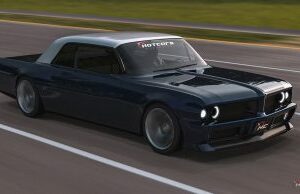The formula of European styling with American performance has been implemented on numerous occasions throughout the course of history, sometimes successfully, other times….not. Some attempts were financially successful while others succeeded in combining elegance and performance but failed in commercial feasibility. The latter was the case of the short-lived American automobile company named the Apollo which produced cars from 1962 to 1965.
An engineer named Milt Brown, a designer named Ron Plescia, and their friend Ned Davis combined their talents and resources to form the International Motor Cars. At the Monaco Grand Prix in 1961, Brown was introduced to Frank Reisner of Carrozzeria Intermeccanica of Torino, Italy. Reiser was a former chemical engineer who was born in Hungary but raised in Canada and educated in America. His Turin-based Intermeccanica Company produced tuning kits for Renaults, Peugeots, and Simcas. A deal between Brown and Reisner resulted in Intermeccanica creating hand-formed bodies in Turin and shipping them by sea to Oakland, California where International Motor Cars installed the drive train. Plescia had created the initial design which was fine-tuned by former Bertone stylist Franco Scaglione, particularly to the front section. The prototype examples were formed from aluminum while the production versions were mainly steel with aluminum doors and hoods.
The ladder frame had a 97-inch wheelbase, was 175 inches in length, 66 inches wide, and stood 50 inches tall. The suspension was from the Buick Special with the front control arms featuring bronze bushings with grease fittings. In the back was a sophisticated four-link trailing arm setup with coil springs on a live axle. Under the bonnet was Buick’s lightweight aluminum V-8 engine displacing 215 cubic inches (3.5 liters) in the Apollo 3500 GT and 300 cubic inches (4.9 liters) in the Apollo 5000 GT. Transmission options included a Borg Warner T-10 four-speed manual or two-speed automatic.
International Motor Cars launched the new GT in Hollywood in March 1963. The demand was strong but like many young companies, they lacked the capital and cash flow demanded by a steady production line. The company would close its doors in the summer of 1964, having sold 42 cars, including 40 coupes and one spyder, plus the prototype. A new contract was formed with Reisner allowing Intermeccanica to supply body/chassis units to Fred Ricketts, owner of Vanguard Industries of Dallas, Texas. Under the Vanguard banner, it was sold as the Vetta Ventura. Eleven examples wore the Vanguard nameplate and an additional 11 body and chassis units were purchased by the shop foreman Tom Johnson before the project came to a close.
A third and final attempt to revive the Apollo formula was attempted by an attorney named Robert Stevens. His Apollo International Company of Pasadena, California completed fourteen cars, with foreman Otto Becker finishing another six.
Mr. Reisner’s influence on the automotive arena was felt for many years, with projects such as the Griffith, the Murena GT, and the Italia by Intermeccanica.

























